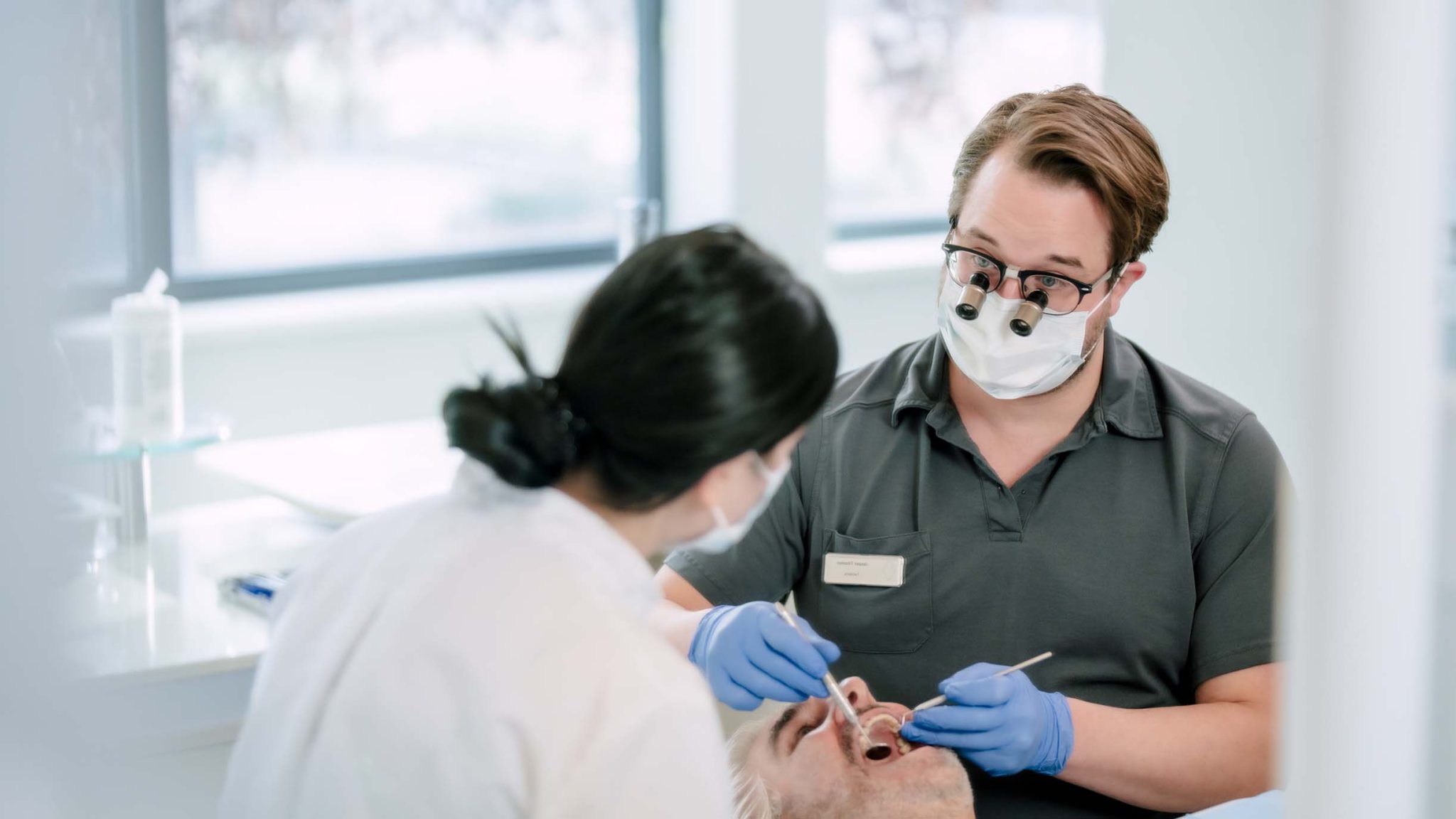Bad breath, also known as halitosis, can be an embarrassing problem. Here are some of the common causes:
Poor oral hygiene
This is the most common cause. Not brushing and flossing regularly causes food particles to remain in your mouth, attracting bacteria that produce foul-smelling sulfur compounds. This is why at Lassus Tandartsen, we recommend seeing an oral hygienist at least twice a year to detect and resolve such problems.
Mouthwash
Ironically, mouthwash, which is often marketed as a product that can improve dental hygiene, can actually cause bad breath. Here’s how.
- Alcohol Content: Many mouthwashes contain alcohol, which can dry out your mouth. Saliva is important for washing away food particles and bacteria, and a dry mouth creates a more hospitable environment for the bacteria that cause bad breath.
- Masking: Mouthwash often masks the smell of bad breath temporarily rather than addressing the underlying cause. If you rely on mouthwash without practising good oral hygiene, such as flossing, using interdental brushes and brushing twice daily for two minutes at a time, bad breath will return.
- Overuse: Overusing mouthwash can disrupt the natural balance of bacteria in your mouth. This can lead to an overgrowth of certain bacteria that produce unpleasant odours and plaque formation.
- Underlying Issues: In some cases, persistent bad breath despite using mouthwash could signal an underlying oral health issue like gum disease or tooth decay. It’s important to see a dentist if you have chronic bad breath.
If you must use mouthwash, here are some additional tips:
- Choose alcohol-free mouthwash.
- Use mouthwash in moderation. Follow the directions on the label.
- Don’t rely on mouthwash as your sole oral hygiene method. Brush and floss regularly.
- See your dentist for regular checkups and cleanings.
Smoking or Vaping
Smoking or chewing tobacco can leave a lingering odour and also contribute to gum disease, another source of bad breath.
Vaping
While vaping might seem like a less harmful alternative to smoking, it’s important to be aware of its potential effects on your oral health.
- Dry Mouth: Vaping can reduce saliva production. Saliva is essential for washing away food particles and bacteria that cause bad breath.
- Nicotine: Nicotine restricts blood flow to the gums, which can contribute to gum disease and bad breath.
- Chemicals in Vape Juice: Some chemicals in vape juice can irritate the mouth and throat, leading to inflammation and bad breath.
- Increased Bacteria: Vaping can disrupt the balance of bacteria in your mouth, leading to an overgrowth of odor-causing bacteria.
Gum disease
Gum inflammation (gingivitis) and the more advanced form, periodontitis, can cause bad breath due to the buildup of bacteria in the pockets between your gums and teeth.
Food
Certain foods, such as garlic, onions, and spices, can cause bad breath because their breakdown products enter the bloodstream and are released in the breath. This is another reason why practising good oral hygiene is essential.
Coated tongue
If bacteria accumulates on the back of your tongue, this can cause a pungent and unpleasant odour.
Alcohol
Alcohol dries out the mouth which can lead to bad breath
Respiratory infections: Sinus infections, tonsillitis, and bronchitis can cause bad breath.
Acid reflux (GERD): Stomach acid backing up into the esophagus can cause bad breath.
Other conditions: Some medical conditions, like diabetes, kidney failure, and liver disease, can also cause bad breath.
Other factors:
- Dentures: Improperly cleaned dentures can harbour bacteria and cause bad breath.
If you’re concerned about bad breath, practising good oral hygiene, including brushing your teeth twice a day, flossing daily, and cleaning your tongue, is important.
Suppose your bad breath persists despite good oral hygiene. In that case, we recommend a combination appointment with an oral hygienist and a dentist to rule out any underlying medical conditions and find a solution. You’re welcome to make an appointment with our dental specialists even if you’re not a registered client of our practice.
